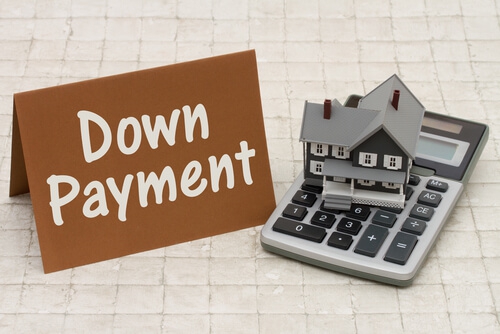 Those who begin exploring the option of living the condominium lifestyle soon discover there is more than just a place to live. On the other hand, there are those who would rather purchase a more traditional single-family luxury home with a yard, etc. There are also buyers who appreciate the condominium environment they enjoy certain amenities they would otherwise have to pay extra for.
Those who begin exploring the option of living the condominium lifestyle soon discover there is more than just a place to live. On the other hand, there are those who would rather purchase a more traditional single-family luxury home with a yard, etc. There are also buyers who appreciate the condominium environment they enjoy certain amenities they would otherwise have to pay extra for.
Many luxury condos in Chicago provide such amenities and more. Indoor and outdoor swimming pools, workout facilities, entertainment areas, dining, and shopping are common for higher-end projects. Yet when considering financing, getting a mortgage means taking a few extra steps.
Financing a higher-end unit means the lender must approve the condominium project as well as approve the applicant. How does the lender approve a condominium? A condominium must meet a few qualifications but the main ones involve occupancy, financials, and insurance.
A condominium project is managed by the Home Owner’s Association or “HOA” The HOA is charged with making sure the owners conform to rules of ownership as laid out in the Conditions, Covenants and Restrictions, or CC&Rs. When approving a condo, the lender sends a form to the HOA for completion and asks several questions about the nature of the project.
Approved condo projects generally must have an owner-occupancy ratio of at least 50% or more. That means if the project houses more rental units than owner-occupied properties, the project cannot be approved. If any single entity owns more than 10% of the units, it can also disqualify the project in certain cases. As it relates to financials, the HOA must document a level of liquidity to handle any maintenance issues and the budget should show a positive cash flow. Funds for the HOA’s budget are collected from monthly or annual HOA fees property owners pay. There must also be a minimum insurance coverage amount to handle not only comprehensive coverage but sufficient liability to protect against claims against the project.
 Down payment requirements typically ask for 20% down and must come from the borrower’s own funds. Loan options for condominiums are typically more restrictive when compared to single-family homes. However, there are now options in Chicago / Cook County that permit up to 95% Jumbo financing for loan amounts up to $2.m in some cases.
Down payment requirements typically ask for 20% down and must come from the borrower’s own funds. Loan options for condominiums are typically more restrictive when compared to single-family homes. However, there are now options in Chicago / Cook County that permit up to 95% Jumbo financing for loan amounts up to $2.m in some cases.
10% down payment Jumbo options typically go up to loan amounts of $3.m for approved condos. All properties must be owner-occupied primary or second homes, and buyers should be well qualified with 680+ credit scores and proper income, and asset/reserve documentation. Read more about the latest requirements on the Jumbo Purchase page.
Borrowers generally have both fixed rate and ARM options – both with no mortgage insurance. Buyers who intend to hold onto the property for the long haul should consider financing the condo with a fixed rate in light of current interest rates. Fixed rate terms will vary but the borrower does have choices on how long or short to amortize the amount borrowed.
Shorter term loans, as little as 10 years, will carry slightly lower rates compared to say a 30-year loan. However, because the amortization period is compressed and the loan is paid off sooner than a 30-year term, the payments will be higher. Loan term choices range from 10, 15, 20, 25 and 30 years. For those who want a lower payment select the longer term while those preferring to pay less interest should select a shorter term. Typically, there is a “sweet spot” for most borrowers somewhere in between the 10 and 30-year period.
Borrowers will generally have both fixed rate and Jumbo ARM options – both with no mortgage insurance. Those who intend to hold onto the property for the long haul should consider financing the condo with a fixed rate in light of current interest rates. Fixed rate terms will vary but the borrower does have choices on how long or short to amortize the amount borrowed. Shorter term loans, as little as 10 years, will carry slightly lower rates compared to say a 30-year loan. However, because the amortization period is compressed and the loan is paid off sooner than a 30-year term, the payments will be higher.
Loan term choices range from 10, 15, 20, 25 and 30 years. For those who want a lower payment select the longer term while those preferring to pay less interest should select a shorter term. Typically, there is a “sweet spot” for most borrowers somewhere in between the 10 and 30-year period.
Hybrid loans are adjustable-rate mortgages that are fixed for an initial period before changing into a variable rate that can adjust annually. The adjustable options offer a lower start rate compared to a fixed rate over the same term and is an option for those who would want a lower rate while still providing rate stability in the early years of the hybrid loan. For borrowers who aren’t sure if they’re going to keep the property for an extended period, the adjustable rate option might be the better choice.
Current homeowners can also learn more about all the standard Jumbo refinance and cash out refinance options here.
We are happy to serve those in Chicago-Cook County 7 days a week. Please connect with us by calling the number above, or just the Quick Call Form
